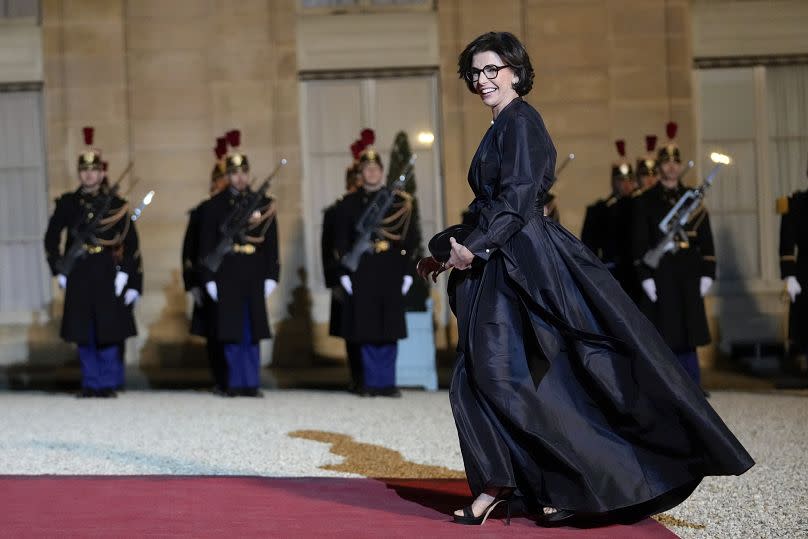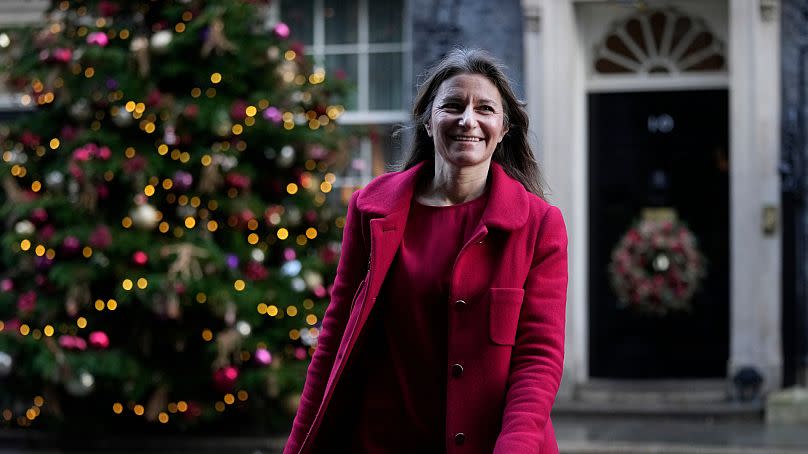As France slashes its culture budget, how do other European countries compare?

Earlier this year, President Emmanuel Macron brought in huge budget cuts to curb France’s exorbitant spending. In February, €10 billion in cuts were announced, in addition to a €16 billion drop in spending that the 2024 budget had already accounted for.
While much of the budget cuts have been aimed – controversially – at environmental and medical transport, one of the key areas facing cuts is also the culture sector.
Economy minister Bruno Le Maire has announced that France’s culture sector will have its annual budget slashed by €204 million, with the main area to be cut in “artistic creation”.
2023 art study reveals top-selling contemporary artist and insights into female representation
Not another teen movie: Six-part drama on Brigitte Macron's life confirmed
It’s a decision that has been harshly criticised already by big names in the industry. Ludovic Nicot, a second violinist who took to the stage at the French classical musical awards in March, accused Macron of “sacrificing culture … sacrificing music.”
Nicot took aim at an audience that included the country’s culture minister Rachida Dati, saying: “The first victim is the public. Fewer concerts, fewer operas, fewer artists. We have to put an end to this erosion.”
Dati, the newly chosen culture minister, was brought in at the beginning of this year. She replaced Rima Abdul Malak, who oversaw France’s culture budget increase during her two-year tenure.

In September 2023, Abdul Malak announced an increase in spending for the nation’s culture budget, increasing it by 6% to €11 billion. This totalled €4.466 billion for the Culture and Media missions, and €4.025 billion for the Public Audiovisual – France’s publicly funded film and TV industry.
The announced €200 million of cuts are, in total, less than the 6% increase that Malak sketched out, though they are nonetheless still a blow to an industry reliant on public funding.
As theTimes noted in their dispatches on the topic, the French opera is a largely subsidised industry with €360 million coming from the government to €147 million generated through tickets. Opera is a key area of France’s cultural soft power and keeping it affordable is dependant on subsidies as, unlike the UK, it isn’t an industry as reliant on private philanthropy.
The cuts in other sectors have been widespread. La Croix reports that the Paris Opera faces cuts of €6 million, the Comédie-Française €5 million, and the Louvre €3 million. These are just the biggest names though, with cuts severing funds to almost every major theatre, gallery and orchestra.
Budget cuts in the UK
France isn’t alone in facing a difficult time with cultural spending. All European nations are reeling from the economic downturn due to the Covid-19 pandemic and Russia’s war on Ukraine.
Over in the UK, the country is also facing the self-inflicted financial woes of Brexit, alongside the disastrous result of chronically underfunded public services.
The UK’s expenditure through its Culture, Media and Sport department was £8.485 billion (€9.93 billion) in 2022-23 which represented an increase from the £8.167 billion spent in the previous 2021-22 period. The recent raise is also still lower than the budget for the period prior with £9.078 billion spent in 2020-21.
In real terms, although the budget for the department – which largely goes towards funding broadcasters – the allocated money for arts and culture is a mere £475 million (€556 million), with a further £361 million (€423 million) going to the sector through lottery grants.

The result of the stagnation of the absolute cultural budget has been stark across the sector in the UK. Multiple councils across the country have run out of funding and local arts funding has suffered dramatically. There have been cuts to some of the UK’s biggest cultural institutions, from the English National Opera through to small scale theatres.
A more pernicious and long-term result of the Conservative government’s arts cuts has been their combination of cutting arts funding in schools and the further demonisation of arts careers as unprofitable.
The creative sector generates £126 billion (€148 billion) a year for the UK and is a significant part of the nation’s soft power.
Around Europe
In Germany, we previously covered the news of Berlin’s State Minister for Culture Joe Chialo’s announcement that he’d increase the capital city’s culture funding to €947 million in 2024.
The overall funding for culture and media has also been rising across Germany. In 2022, it was announced that the culture budget would increase to €2.3 billion.
However, in 2024, the German government announced that it would curtail culture spending, with the latest draft of the budget cutting the spend on culture to €2.15 billion.
The Netherlands has also been slowly dropping its culture budget. As expenditure has been slashed from €1.456 billion to €1.232 billion between 2020 and 2024, funding alongside has also dropped – although less significantly – from €1.187 billion to €1.049 billion.

